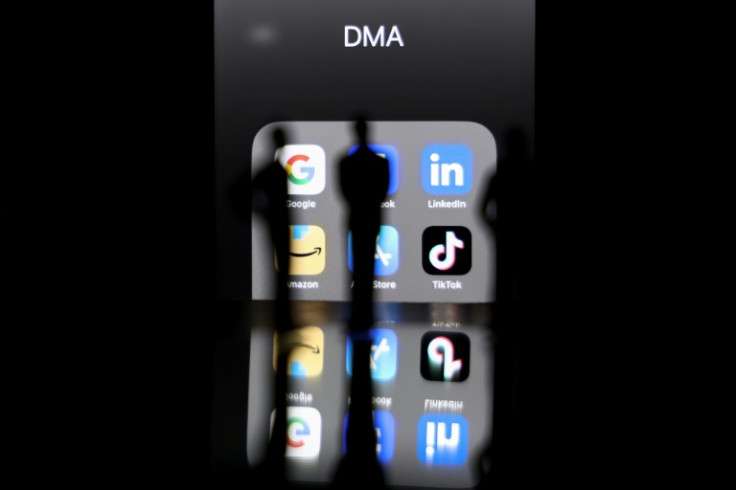
2024 will be a year of change for the world's biggest tech companies as they bow to EU rules that come into force next month, shaking up how Europeans use vastly popular platforms from Google to Instagram.
The European Union long ago set its sights on big tech, aiming to rein in globally dominant companies like Apple, Google and Microsoft.
The landmark law known as the Digital Markets Act (DMA) breaks new ground because, rather than acting after the fact, it seeks to prevent companies from becoming powerful enough to edge out rivals.
"This is really a big, big intervention in markets that affect people's lives every day," said Fiona Scott Morton, senior fellow at think tank Bruegel.
Brussels in September named six so-called "gatekeepers" that face tougher curbs: Google's Alphabet, Amazon, Apple, TikTok parent ByteDance, Meta and Microsoft.
It singles out 22 "core" platform services by the big six, including Amazon Marketplace, Apple's App Store, Facebook, Instagram and Google's Chrome browser.
"The point of the law is to open up these platforms and make the interface widely accessible so that there can be competition," Scott Morton told AFP.
The firms have until March 7 to comply, with a flurry of changes announced since the start of the year -- even as Apple, TikTok and Meta pursue challenges to aspects of the law.
"We'll get some of the benefits of the opening up of these markets pretty quickly," Scott Morton predicted.
One of the biggest changes announced so far came from Apple, which said in January it would allow alternative app stores on the iPhone for the first time.
The firm has moved grudgingly to comply, while also legally contesting that its app stores across all products including the iPhone should count as one.
Google's EU users are seeing banners asking if they want to keep their Google services, like YouTube and Chrome, linked -- and therefore allow data sharing.
Another big change will be choice screens: the EU wants firms to make it easier for users to choose their default search engine or browser, in an attempt to challenge Google search's dominance.
Google has promised to overhaul its results page, with a group of links to price comparison websites and removing some features such as Google Flights.
Microsoft has also announced steps to comply -- including letting Windows users in the European Economic Area (EEA) -- uninstall its Edge browser from their computers, and scrapping pop-ups urging new users to try the interface.
The EEA includes the bloc plus Iceland, Liechtenstein and Norway.
Advertising services by Amazon, Google and Meta must also adjust to the new rules, and Amazon last month detailed changes to its ad service, including providing more information about pricing.
Letting users decide how much of their data should be shared between the biggest companies' various platforms is one of the headline changes sought by the EU.
Meta said last month that users in the EU, in the EEA and in Switzerland will be able to create a separate Facebook Messenger account if they do not want it linked to their Facebook account.
Individuals will also be able to access Facebook Marketplace and Facebook Gaming without using their main account information.
At the same time, Meta is contesting the law's application to Facebook's Messenger and Marketplace services.
Likewise, Chinese-owned TikTok, the only non-US business on the EU's list, says it does not meet various thresholds for the law to apply and has been wrongly designated.
Of all the giants it targets, the DMA has perhaps the greatest potential to alter Apple's closed ecosystem.
Apple has not hidden its contempt for the DMA, which it says creates privacy and security risks.
Inside the industry, Apple has been accused of acting in bad faith -- including by Meta's Mark Zuckerberg who suggested its changes made it no easier to create alternative app stores on the iPhone.
"Apple clearly has no intention to comply with the DMA," said Rick VanMeter, executive director of the more than 70-member Coalition for App Fairness, which has long called for Apple to open up its marketplace.
"Apple is introducing new fees on direct downloads and payments they do nothing to process, which violates the law," he said.
Apple has said that its changes comply with the DMA.
One vocal critic is Daniel Ek, the CEO of Spotify, which is part of the app coalition and called Apple's announced changes "a new low" for the firm.
Echoing a rising chorus among Apple's competitors, Spotify voiced hope that the DMA will end "unfair stifling of innovation disguised by Apple as security protections".







